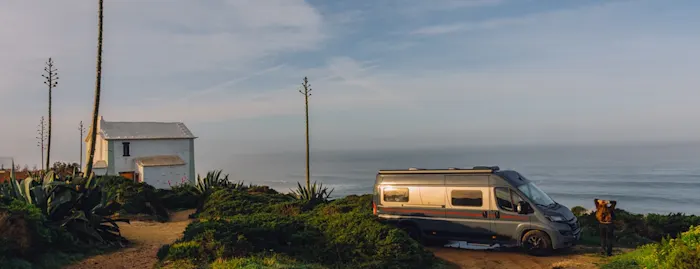
Sustainable travel: tips for an environmentally friendly camping vacation
Updated at: 01/12/2026
Reading time: 5 minutes
When it comes to planning a holiday, sustainability is becoming an increasingly important issue. Many travel enthusiasts want to spend their holidays at one with nature and pay attention to their ecological footprint. Compared to package holidays or flying, travelling by motorhome can be much more environmentally friendly. Below you can read about how to travel more sustainably with a motorhome.
How do I find an environmentally friendly motorhome?
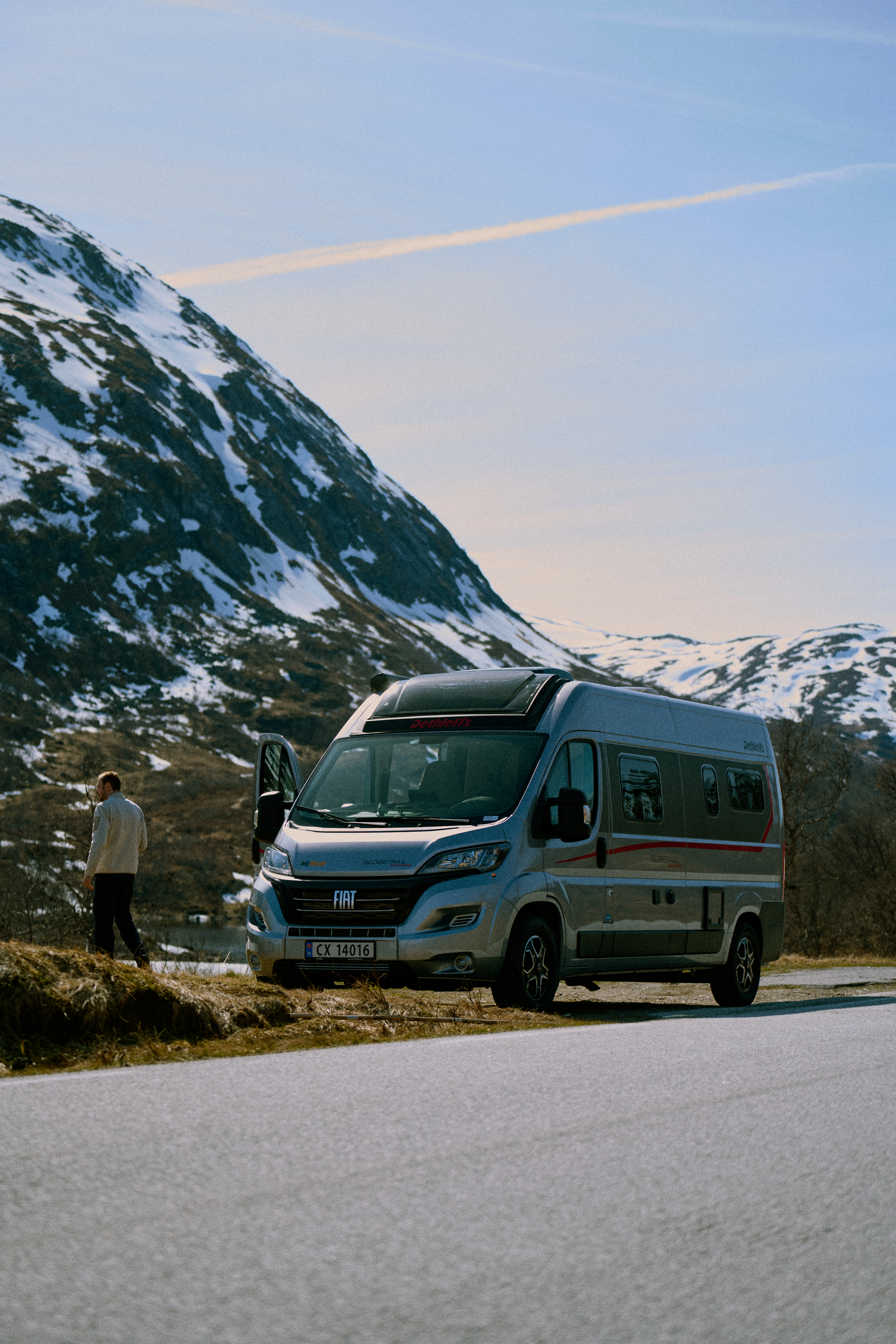
When choosing a suitable eco-friendly campervan for a relaxing holiday, there are several things to consider:
Before you rent or buy a motorhome, you should find out exactly how fuel-efficient the model is. Modern motorhomes are usually more economical than older ones. In the UK, for example, the models of the major rental companies Road Bear and El Monte are modern and use Euro 6 engines.
Choose the correct size camper. Smaller camping vehicles, such as relatively compact campervans, generally have lower consumption than large motorhome models.
Bicycles or luggage boxes on the roof of the motorhome increase air resistance, which increases fuel consumption. If possible, avoid models with alcove beds for the same reason.
Do without some of the luxuries in the motorhome (e.g. the shower). Use the extra equipment (e.g. heated seats) sparingly to save energy.
If you want to invest in sustainability in the long term, consider using solar panels. If you would like to rent a motorhome with solar panels, you will find more information on the details pages of each motorhome.
Motorhomes with electric or hybrid drive are often regarded as trendsetting when it comes to environmentally-friendly holidays. Even though the range of such models is currently still small, it is worth keeping your eyes open for electric campervans.
How do I drive a motorhome in a fuel-efficient way?
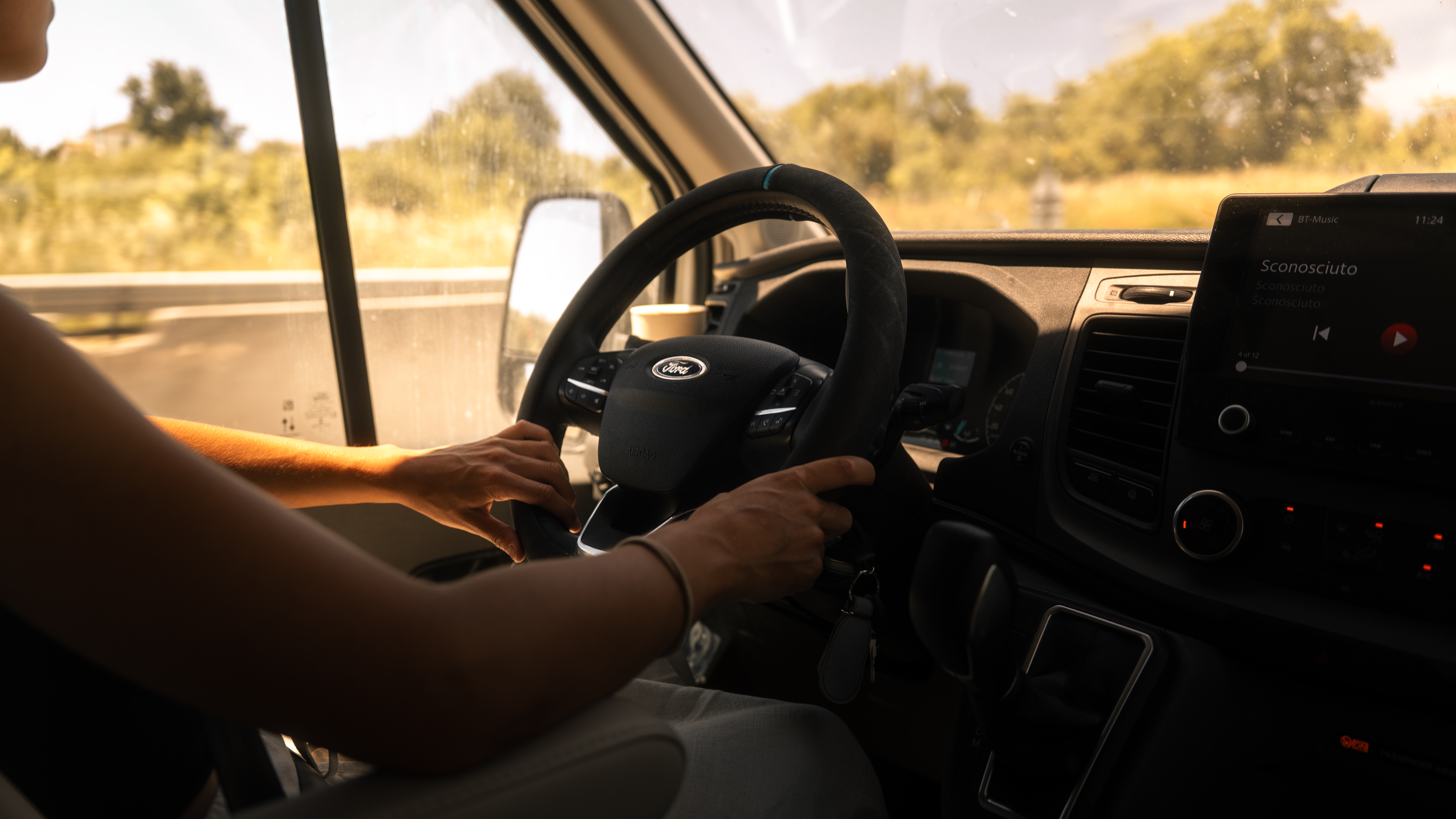
Once you have chosen the ideal motorhome for your holiday, there is still lots you can do to make your holiday as environmentally friendly as possible. A good place to start is to keep your fuel consumption as low as possible. This is better for the environment and your wallet
Save fuel by packing cleverly
The less weight, the less fuel is needed. When packing your car, make sure it is only as heavy as necessary. Pay attention to the following basic points:
The freshwater tank should only be filled as much as needed for the journey. As soon as you arrive at the campsite, you can fill it up without worrying.
Empty the wastewater tank before you travel to avoid carrying unnecessary weight.
Encourage everyone travelling with you to pack as light as possible. Many campsites allow you to wash dirty laundry, towels, or tea towels, so you can wash and reuse items easily.
Only carry the food you need for the journey. Take enough to be on the safe side in case of delays due to traffic jams or detours, but not so much that you could feed yourself for the entire trip.
Sustainability bonus: If you restock at each stop, then you will be saving weight and supporting local businesses.
As some destinations are more expensive than others, it’s worth weighing up the cost of bringing some supplies from home.
Would you like to explore the area around you? For short journeys, leave the camper behind and use public transport - or go for a bike ride.
How to save fuel by driving carefully
In addition to vehicle type and weight, driving behaviour also plays an important role in saving fuel. Even small adjustments to your driving style can make a big contribution to saving fuel and travelling more sustainably:
Drive carefully and avoid unnecessary acceleration and braking, e.g. when approaching a town sign, traffic lights, or a traffic jam.
Accelerate gently and then keep your cruising speed as constant as possible.
Avoid unnecessary overtaking.
Shift up in good time and avoid driving at high revs.
Drive with the correct tyre pressure to ensure low rolling resistance during the journey.
Depending on the vehicle model, the optimal cruising speed for a motorhome is 50 to 60 mph. A steady speed reduces fuel consumption and at the same time makes the journey more relaxing.
Electrical equipment: Where can you save?
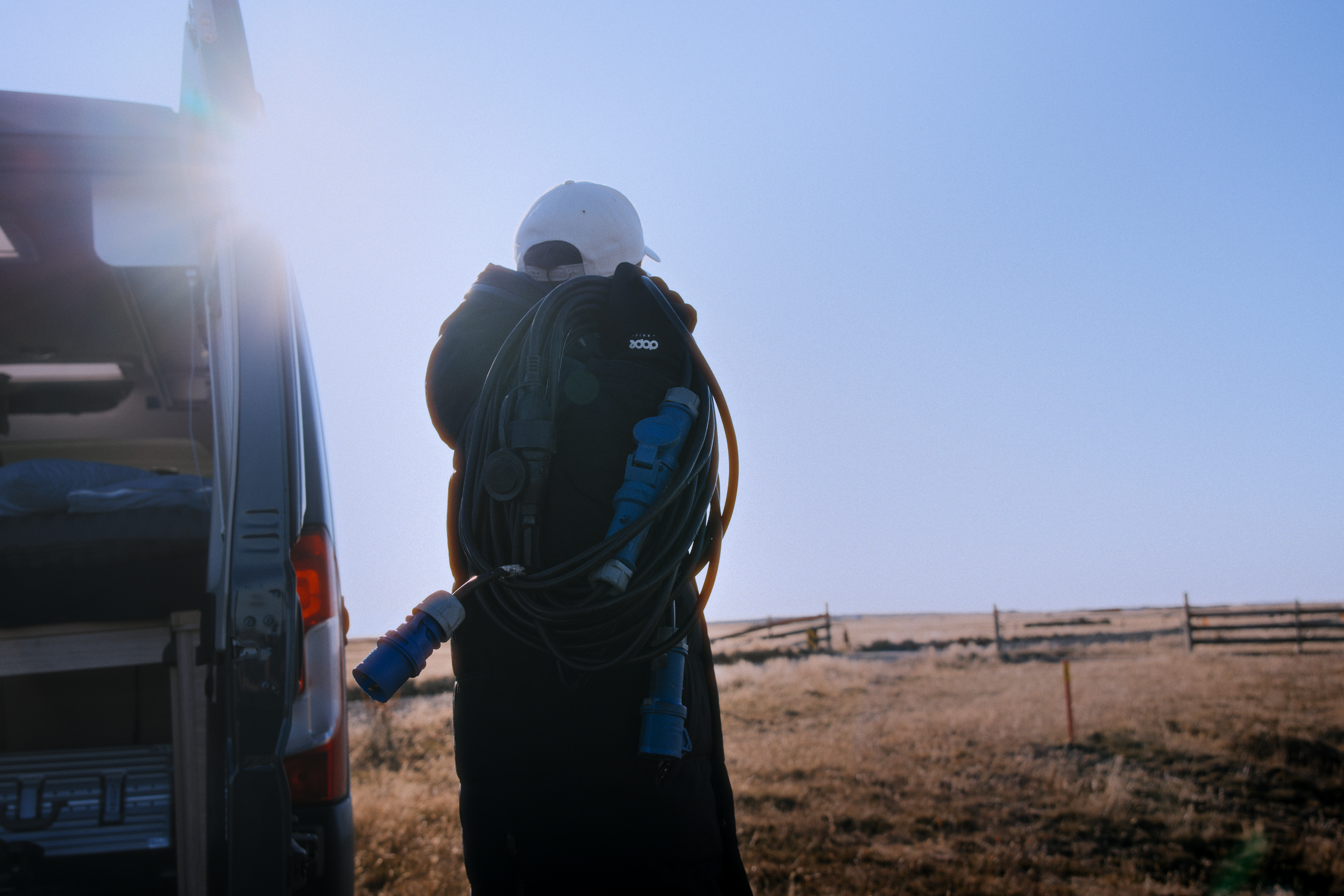
Air conditioning and auxiliary heating are considered real fuel guzzlers. While they are useful and even necessary in some climates, using them sparingly will help keep the fuel consumption lower. At low speeds, e.g. in city traffic, open windows or sunroofs can provide a pleasant airflow. At higher speeds on motorways, however, open side or roof windows increase air resistance, which can also increase fuel consumption. Just be conscious and keep adjusting your surroundings to the situation.
By the way: lighting, windscreen wipers, and windscreen heating are essential for safety. You should therefore not skimp these!
How can I make sure my camping equipment is sustainable?
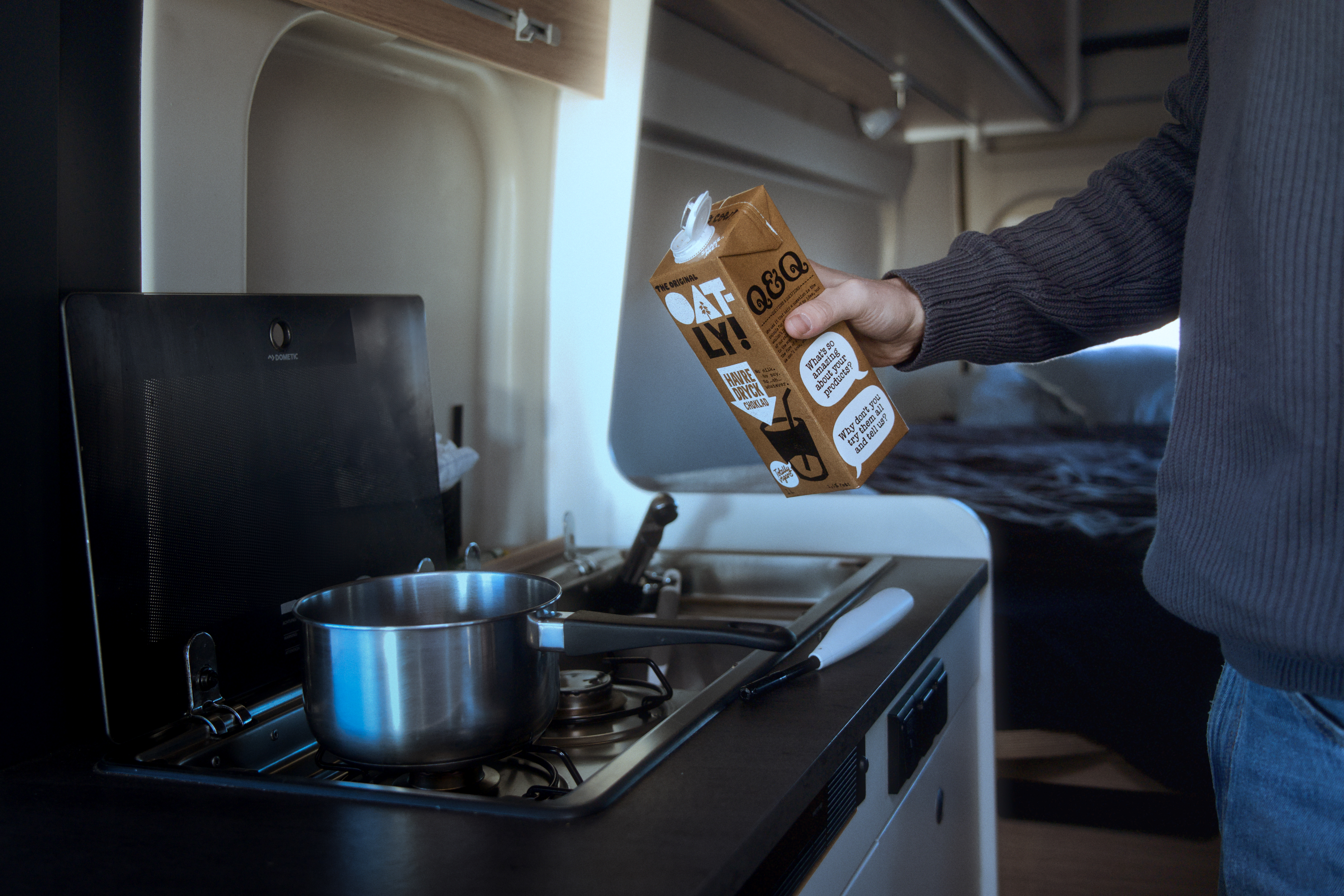
For a comfortable camping holiday, you will need a lot of equipment, from hygiene products to leisure equipment. Here are a few tips to make your camping more environmentally friendly and more sustainable:
Use organic, chemical-free alternatives to conventional cosmetics and cleaning products. Solid soaps and shampoos are even more sustainable, as you can also save on plastic packaging.
If you are able, buy high-quality reusable products that will last you for many years. This includes wooden or stainless-steel camping utensils.
Are there other camping enthusiasts in your family or circle of friends? Then it may be worth sharing larger items of equipment such as camping chairs, parasols, or bike racks. If you rent a motorhome, you can simply rent the necessary equipment such as crockery, chairs and so on.
If you can't or don't want to share certain items, you can buy equipment second-hand or rent it. This way you save resources by not buying new equipment.
How can I spot an environmentally friendly campsite?
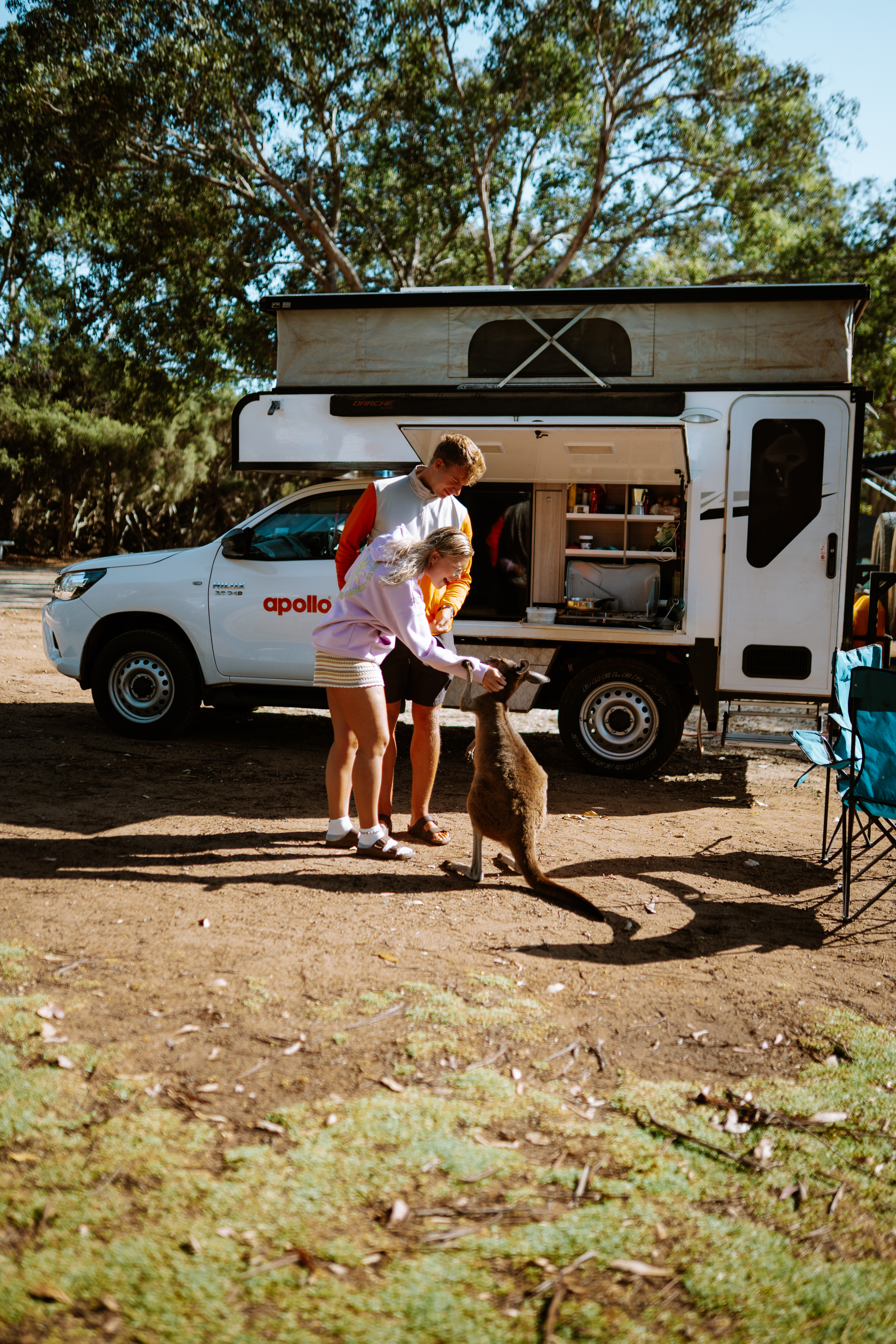
If you are concerned about the environment and climate change, you might want to look for an eco-camping site. A campsite can be environmentally conscious in different ways:
Efficient energy use or use of renewable energy sources
Using water sparingly
Using natural cleaning products
Separating and avoiding waste
Nature-friendly leisure activities
Nature-oriented design of the campsite
Campsites that meet these criteria can be awarded to show their commitment. An example award is the ECOCAMPING award in Europe.
Conclusion: Eco-friendly travel with a motorhome
Even if you don’t yet meet all the sustainability criteria when planning your holiday, every little step counts towards making your next holiday more environmentally friendly. For example, you can try to do without plastic in your camping kitchen or cosmetics. Or you can resolve to drive in a particularly fuel-efficient way. The environment and your wallet will thank you! Sustainable travel does not only means doing without, but also more thoughtful buying, packing, and driving sometimes gives a more balanced and a carefree holiday feeling.

Do you have any feedback on the article, questions about booking a motorhome, or are you looking for tips? Then feel free to write to us here. We will get back to you as soon as possible.


